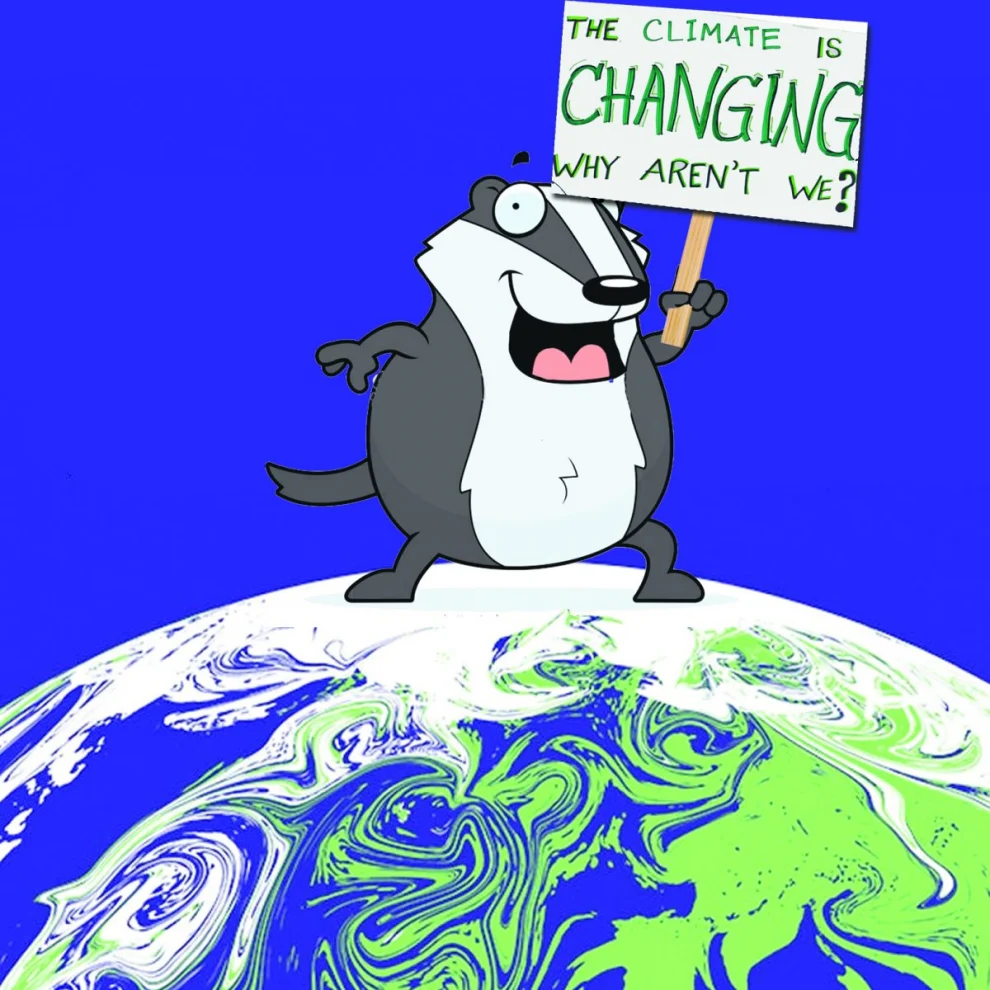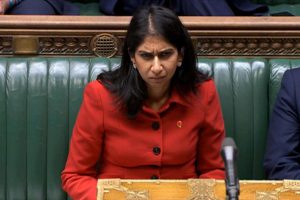THIS week – amid much fanfare and ballyhoo – world leaders have been meeting in Glasgow.
Their mission – should they choose to accept it – is to save the world from the threat posed by climate change.
Climate change is real. And humankind has played a significant role in making it worse.
Nothing can be done to prevent climate change, and the only thing that can be done is to arrest its speed of increase and ease its worst effects for future generations.
It’s a difficult concept to grasp, but Badger looks at it this way: if you look after yourself when you’re younger, you reduce the ills of a stranger in the future. The future stranger is yourself.
Crikey Moses! Badger wishes he’d realised that when he was twenty.
The other side of that equation is that taking care of yourself costs time, effort, and money.
In the same way, when people bandy around the phrase ‘saving the planet’, they tend to ignore the massive costs associated with reducing climate change’s future impacts.
We have to be clear about this: tackling climate change is not only an opportunity, but it also comes at a stiff cost.
People living in a world of make-believe might think that rolling back the Industrial Revolution is the answer to all humanity’s ills. Frankly, the more palaeolithic climate change activists are bonkers if they think modern society is prepared to give up its dependence on its creature comforts.
They’ve constructed a fantasy world in which people accept micro-management of their daily lives and activities to pursue a goal greater than themselves.
There’s a word for that sort of intellectual construct: a cult.
It’s a Messianic ideal that forgets humans’ individual agency and collective selfishness.
Eco-communism is still communism: a flawed economic model doomed to failure precisely because it ignores human nature and irrationality.
Put yourself in the shoes of countries trying to expand their economies.
Their populations have been subjected to rule by other countries, had their resources plundered by other countries, and been left in poverty. Now, the same countries that did all those things tell them they can’t use their resources to improve their economies because their former oppressors have screwed up the planet.
It’s not a commanding moral position from which the world’s largest economies can lecture developing nations about saving the planet.
Badger is not much of a golf fan, and all that trying to get balls into holes while clinging onto graphite shafts is not for him.
But he knows one thing about golf – generally speaking, you have to play the ball from where it lies and not from where you want it to be.
With that in mind, for all the idealism and protests, the one thing that will matter to the vast majority of people will be how much of a hit they’ll take in the pocket.
Unlike pressure groups, lobbyists, think tanks, and activists, governments have to get elected.
In Badger’s long memory, he cannot recall a government getting elected by telling potential voters that they will make them poorer.
For all the Welsh Government’s ambitions for Wales’s greener future, it has been very careful to avoid spelling out the capital costs of achieving its aims, the cost in terms of economic opportunities foregone, and the ultimate cost to the Welsh taxpayer of its policies.
And, while the ambitions are laudable and the passion of Climate Change Minister Lee Waters commendable, the Welsh Government knows that the effects of its initiatives will be limited and come at a massive cost beyond that measured in purely financial terms.
As Badger has said before, the way to make progress in Wales is not to build big vanity projects for energy generation: community microgeneration is the way forward. Large-scale green energy projects will spend an eternity getting off the ground – and getting around the objections of – umm – green energy campaigners and assorted nimbies.
If any of those big ideas ever come on stream, it will be at a high price. And while they remain unbuilt pipe dreams, the cost to the earth of investing in green, white elephants will inexorably climb in environmental terms.
For the avoidance of any doubt at all, even building small will mean those describing themselves as “environmentalists” will have to compromise somewhere if they’re going to achieve the merest smidgeon of greening.
Something has to give for progress to be made.
It is, for example, not very well-known that one of the most successful objectors to green energy projects in Wales- if not the most successful thwarter of them – is the RSPB.
Now, Badger is a major fan of our avian friends. They’re tasty and nutritious, and there’s healthy protein to be had from an unwary fledgeling or a broken egg. But if the price of securing our future on the planet is a few dead sparrows, so be it. You have to be prepared to make a trade to achieve the wider objective.
Compromise is the c-word nobody wants to use, but it will be essential.
To ensure we’re all clear, Badger repeats that means compromise on all sides.
Government and leadership mean balancing competing priorities and not pandering to special interest groups to override larger objectives.
Over the last four decades, the incidental effect of destroying the UK’s industrial base has cut our carbon footprint by more than any large economy.
Along the way, the UK has become a low-wage, low-skilled service economy.
That means that the burden of tax increases or diverting funding towards technologies to lessen climate change’s effects will fall upon those least able to afford any cut in their living standards.
Dream green dreams of a rural utopia all you want; however, the government cannot continue to leave the poor behind while fulfilling them.
The impulse to change comes from self-selecting pressure groups and campaigns. The wish to change might come from governments. But the will to create change will only come from convincing the people that great economic pain now will mean less economic pain later.
And, in a democracy, achieving that will mean less greenwashing hogwash and a more honest conversation with the whole electorate about what that will mean for the pound in their pockets.
To complete that thought experiment, go back in your time machine and tell your twenty-year-old self not to smoke, drink, or do the hoochie-coo because it’ll be good for someone they’ll never meet.
See where that gets you.


















